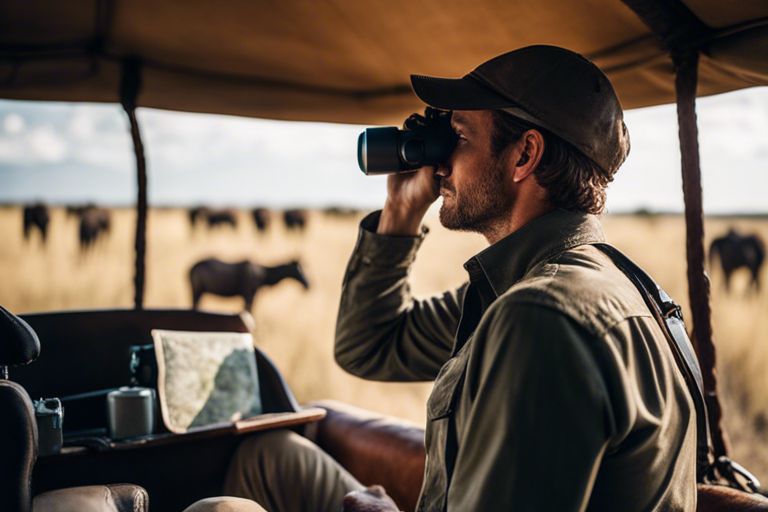How To Stay Safe On Your Solo Safari In Tanzania Visit Tanzania 4 Less
Overwhelmed by the idea of begining on a solo safari in Tanzania? Fret not, as we’ve got you covered with necessary safety tips to ensure a smooth and secure adventure. Navigating the stunning wilderness of Tanzania solo can be a life-changing experience, but it’s crucial to prioritize safety above all else. From wildlife encounters to cultural sensitivities, our comprehensive guide will equip you with the knowledge and resources needed to make the most of your solo safari while staying safe and sound. Trust us to help you make your dream Tanzania safari a reality, without compromising on safety.

Preparing for Your Solo Safari
Essential Factors to Consider Before Departure
It is crucial to research the best time to visit Tanzania for your safari experience, taking into account weather conditions, wildlife migrations, and tourist seasons. Check with your local healthcare provider for necessary vaccinations and medications to ensure a healthy trip. Notify your embassy about your travel plans and register with STEP (Smart Traveler Enrollment Program) for safety alerts and updates while abroad. Additionally, inform a trusted contact of your itinerary and stay in touch regularly during your journey.
- Research the best time to visit Tanzania
- Consult with your healthcare provider for necessary vaccinations
- Notify your embassy and register with STEP
This will ensure you are prepared for any unforeseen circumstances and can enjoy your solo safari with peace of mind.
This all leads to a point to ensure your safety and peace of mind throughout your trip.
Packing Tips for a Solo Traveler
Even as a solo traveler, it is crucial to pack light but efficiently for your safari adventure in Tanzania. Include lightweight and breathable clothing for hot days, layers for cool nights, and neutral colors for blending in with nature. Don’t forget crucial items like a sturdy pair of walking shoes, insect repellent, sunscreen, a hat, a reusable water bottle, and a first aid kit. Pack photocopies of your important documents and store them separately from the originals for emergencies.
- Pack light but efficiently with versatile clothing
- Bring crucial items for comfort and protection
- Keep photocopies of important documents
After all, being well-prepared will allow you to fully immerse yourself in the safari experience without worrying about missing necessities.
Your preparations for the safari, including packing wisely, will contribute to a smooth and enjoyable solo adventure in Tanzania.

Navigating the Tanzanian Terrain
Now that you’re launching on your solo safari in Tanzania, it’s important to understand how to navigate the diverse terrain of this beautiful country.
Understanding Local Wildlife and Geography
Assuming you’re exploring Tanzania’s national parks, it’s crucial to familiarize yourself with the local wildlife and geography. Tanzania is home to a wide array of animals, from majestic elephants to stealthy leopards. Be aware of the different habitats within the parks, ranging from open savannas to dense forests, as these will dictate the type of wildlife you encounter.
Tips on Safely Interacting with Wildlife
Tips on how to safely interact with wildlife are a crucial aspect of your solo safari experience. Always maintain a safe distance from animals, especially predators like lions and hyenas, to avoid any potential confrontations. Stay inside your vehicle during game drives and never attempt to feed or touch any animals you encounter in the wild. Assume that all wildlife is unpredictable and potentially dangerous.
It’s important to respect the natural habitat of the animals and observe them from a safe distance. Never approach wildlife on foot, especially if you are alone. Always stay with your guide and follow their instructions at all times. Assume that wild animals have their own space and boundaries that should be respected.
Cultural Considerations and Etiquette
How-to Respect Local Traditions and Customs
Traditions and customs play a significant role in Tanzanian culture, and it is imperative to respect and abide by them during your solo safari. Traditional greetings, such as the Swahili phrase “Jambo” or “Habari”, demonstrate respect for local customs. Additionally, dressing modestly and avoiding public displays of affection show appreciation for the conservative values held in Tanzanian society.
Communication Tips to Foster Positive Interactions
Local languages, such as Swahili, are widely spoken in Tanzania, and making an effort to learn a few basic phrases can go a long way in fostering positive interactions with locals. Smile and maintain eye contact while communicating to show respect and interest in the conversation. It is also important to speak clearly and at a moderate pace to ensure effective communication.
- Avoid discussing sensitive topics such as politics and religion.
- Listen actively and show genuine interest in learning about the local culture.
Howto properly engage with locals can greatly enhance your experience in Tanzania and contribute to meaningful cultural exchanges. By respecting traditions and customs, as well as practicing effective communication skills, you can ensure a safe and enriching solo safari in Tanzania.
Staying Healthy and Secure
How-to Manage Health Risks in Tanzania
Keep yourself healthy during your solo safari in Tanzania by taking necessary precautions. If you plan to visit rural areas or national parks, consult with a healthcare provider to get vaccinations such as yellow fever, typhoid, and hepatitis A. Be sure to drink only bottled or filtered water, avoid eating raw or undercooked food, and use insect repellent to prevent malaria and other insect-borne diseases.
Strategies for Ensuring Personal Security
Secure your safety while exploring Tanzania solo by being aware of your surroundings and avoiding risky situations. A few imperative strategies include staying alert in crowded places, not flaunting valuables such as expensive jewelry or gadgets, and using reputable transportation services. It’s also wise to keep important documents and cash securely stored in a money belt or neck pouch.
Crisis Management
What to Do in Case of an Emergency
On a solo safari in Tanzania, it is crucial to be prepared for any unexpected emergencies. In case of an emergency, stay calm and assess the situation. Contact your local guide or lodge staff immediately for assistance. They are trained to handle emergencies and can provide the necessary support and guidance.
How to Seek Help When Traveling Alone
Alone and in need of help while traveling in Tanzania? Keep a list of emergency contacts, including local authorities and your embassy, handy at all times. Most lodges and camps also have access to satellite phones or radios for communication in remote areas. Don’t hesitate to reach out for help if needed.
To ensure your safety, consider registering with your embassy or consulate before your trip. They can provide you with important updates and assistance in case of any emergency situations.
Summing up
As a reminder, staying safe on your solo safari in Tanzania is of utmost importance to ensure a memorable and enjoyable experience. By following the tips provided in this guide and booking with Visit Tanzania 4 Less, you can have a worry-free adventure knowing that your safety is a top priority. Remember to respect the wildlife, stay informed of your surroundings, and always have emergency contacts readily available. With proper preparation and caution, your solo safari in Tanzania can be a dream come true.








